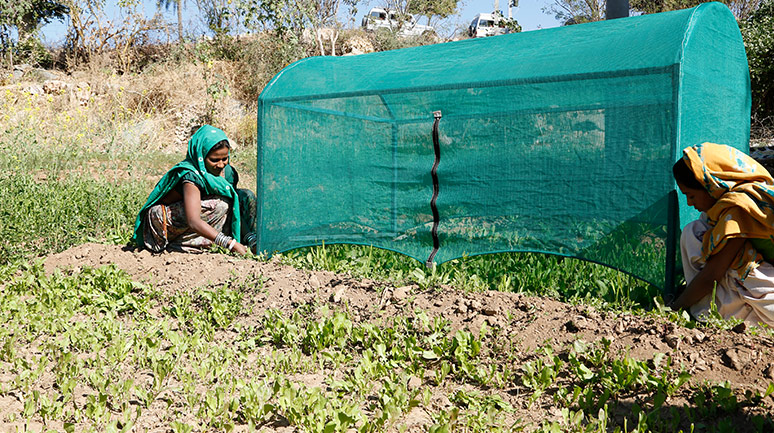Integrated Soil Fertility Management: Converting Subsistence Farming to Productive Farming


Maintaining or improving soil health is essential for sustainable and productive agriculture. ISFM strategies assist farmers in following a scientific process for cultivation without eroding the soil’s inherent capacity to produce more by maintaining its fertility level
D ETERIORATION IN THE FERTILITY OF THE SOIL is a major concern for the sustainability of Indian agriculture. For centuries, the farmers of India have practised an agricultural system that ensures modest but stable yields and, yet, have maintained optimum soil fertility. This balance was interrupted by the widespread push for increased production with the introduction of high-yielding varieties of seeds, intensive use of chemical fertilizers and pesticides, and extensive tillage. This shift has now raised concerns about whether the Green Revolution in agriculture is sustainable and is it leading to a green economy?
In terms of land degradation, India is one of the most highly affected countries. Rain-fed areas have been seriously affected by land degradation. The agricultural community is of the view that, after the creation of access to fresh water, measures to curb soil degradation is the key factor in making agriculture viable for small landholders. There is no single, simple and unique solution to address the problem of soil degradation universally. A local, integrated and action-oriented soil fertility management strategy is essential. The soil of the district has, over the years, become highly degraded due to the injudicious use of chemical fertilizers.
The soil of the district has, over the years, become highly degraded due to the injudicious use of chemical fertilizers

